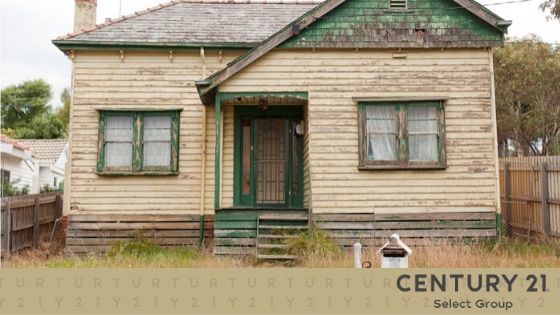Costs to Estimate Before Buying a Fixer-Upper
Buying a house that needs some work and turning it from a fixer-upper into a home can be daunting. A lot of effort is ahead, requiring potential buyers to determine their skills, budget and schedule to get the job done.

Here are some ways to determine the true costs of a fixer-upper:
Start With a List
Either by yourself or with a contractor or home inspector by your side, go through the house room by room and write down what needs fixing. Many problems won’t be visible to the naked eye, so a professional inspector can help by testing to see if there are hazards such as mold, radon or lead paint.
The inspector should also look for possible structural problems. These can include foundation damage, major plumbing or electrical problems, an inefficient HVAC system, termite damage or even a damaged roof. Any of these major issues might be enough to convince you to walk away.
What Can You DIY?
If you have the time and the skills required, you can do some of the home improvement projects yourself and save money. Leave the hard and potentially dangerous work to the pros, but maybe you have experience hanging cabinets, repairing walls, building decks, tiling, painting or completing other low-impact projects.
Estimating Costs
Repair costs vary by where you live. For a ballpark estimate of home repairs in your area, go to HomeAdvisor.com and enter your zip code and the job you want done.
You can also ask friends and neighbors how much they paid for similar work, or have contractors go through the house and give you estimates, which should be provided in writing. If you’re doing any work yourself, shop at your local hardware store to see how much supplies will cost.
Finally, add 10 to 20 percent to the total estimate as a buffer in case problems pop up.
Other Costs
Your city government may require a permit to allow work on your home to proceed. These can be costly, sometimes as much as 1 percent of the total repair cost.
Another cost is financing. If you don’t have the money up front to pay for repairing a fixer-upper, you may need a bank loan, a few credit cards or an FHA 203k loan from the Federal Housing Administration that combines a home purchase loan with a home improvement loan.
If the cost estimate falls within your budget and you’re up for all the hard work, buying that fixer-upper could be right for you.
This article is intended for informational purposes only and should not be construed as professional or legal advice.





